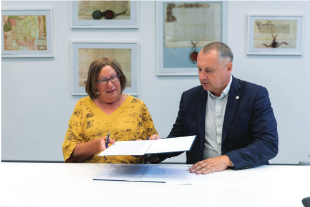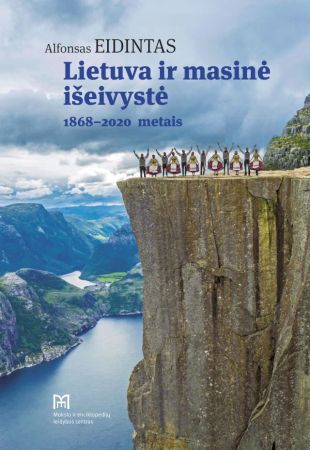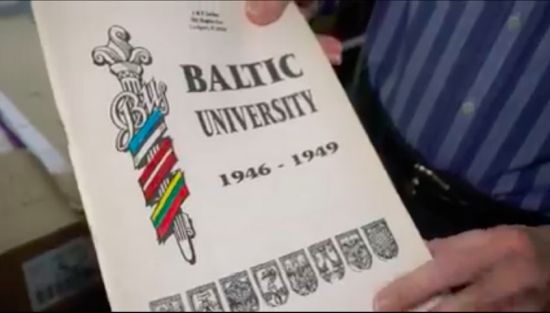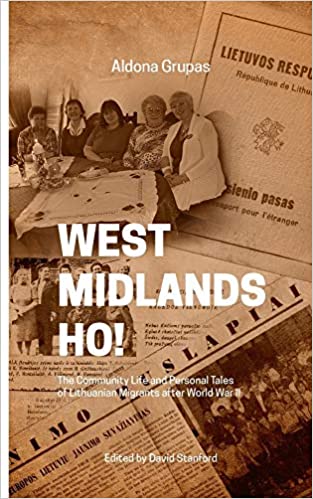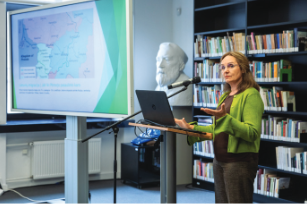
This summer, the National Library of Lithuania hosted a talk on how to search for Lithuanian data in US archives and genealogical websites presented by Karilė Vaitkutė, head of the Genealogy Department at the Balzekas Museum of Lithuanian Culture in Chicago (USA).
Vaitkutė shared her experience with how to search for Lithuanian material in various US archives, as well as paid and free-of-charge genealogical websites, how to decipher the documents found, how to determine whether they belong to a family member under consideration, and how to overcome the obstacles that occur during the research. In her talk, she also answered more specific questions concerning the search for Lithuanian relatives in the USA and gave an overview of the different sources available.
For the past ten years, Vaitkutė has been working in the field of genealogy, helping Lithuanian Americans whose grandparents and great-grandparents came to the USA before World War I or after World War II to find their roots in Lithuania and Lithuanians who are looking for their relatives in the USA.
